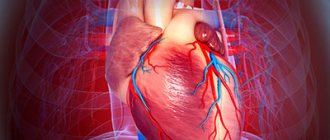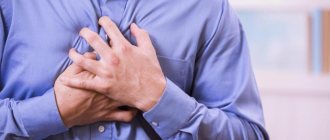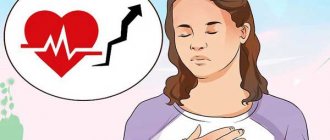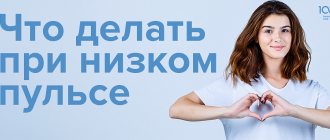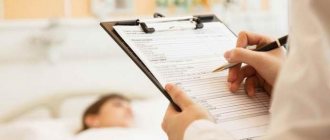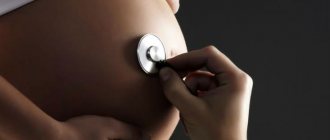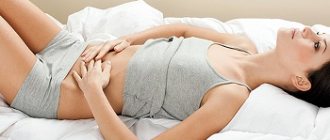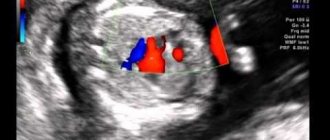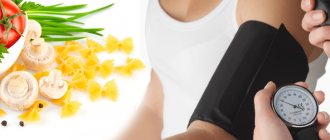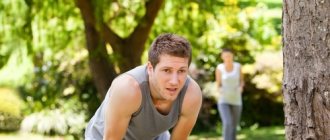Tachycardia after eating is not considered normal. This symptom complex is manifested by increased heart rate, pain in the chest, shortness of breath and increased sweating. If these signs occur only against the background of overeating, the first step is to reduce the portions consumed. However, an increase in heart rate even when eating light food should already be a reason for urgent consultation with a doctor. This type of tachycardia may indicate serious pathologies of the cardiovascular system, endocrine glands, and other organs.
Causes of increased heart rate after eating
The simplest cause of tachycardia after eating is uncontrolled consumption of large portions. In this case, the stomach becomes full and puts increased pressure on the diaphragm, which reflexively causes an increase in heart rate. The symptom often occurs when eating fatty, fried foods, flour products and sweets. However, the acceleration of the pulse in this case is not accompanied by additional symptoms of tachycardia and disappears after a few hours. A more dangerous condition is when symptoms develop even when eating small portions of food.
The exact cause of the pathology can only be determined based on the results of a comprehensive examination. As a result of ultrasound, ECG, blood tests and other tests, a number of dangerous diseases can be identified.
The causes of tachycardia after eating can be:
- overweight;
- chronic diseases of the cardiovascular system (ischemia, arterial hypertension, vegetative-vascular dystonia);
- history of myocardial infarction;
- unhealthy diet with a predominance of fatty foods in the diet;
- undergone gastric resection (removal) surgery - the food lump enters directly into the small intestine, which is accompanied by a sharp deterioration in well-being;
- malfunctions of the thyroid gland - they can cause heart rhythm disturbances;
- anemia - lack of oxygen in tissues provokes an increase in heart rate so that blood is distributed faster throughout the body;
- disorders of the nervous system - in some cases it is enough to take a sedative on a natural basis.
REFERENCE! It is important to immediately determine if tachycardia occurs simultaneously with taking certain medications. It is an adverse reaction of the body to the components of the drugs and appears some time after the start of the course of treatment.
Watch what you eat
- Heavy, fatty and dense foods can also contribute to heart palpitations. So be mindful not only of what you eat, but also in what quantity.
- If you think that certain foods cause heart palpitations, keep a food diary.
- Pay special attention to substances such as caffeine, alcohol and sugary foods and drinks that you consume to identify the connection between your diet and heart palpitations. Write down not only what you eat, but also how you feel, noting palpitations, sleepiness or malaise.
- Then be sure to consult with your doctor and discuss what role diet may play. As a rule, not only eliminating a few foods helps, but also making changes to your daily menu.
- For example, switching to a mostly plant-based diet and limiting the amount of red meat, saturated fat and sugar can reduce the risk of arrhythmia.
Symptoms
Normally, a person's pulse rate is 60-80 beats per minute. This indicator may vary depending on the physiological state of the person. It also increases after active exercise, stress or fear. An increase in heart rate after eating is not considered a normal condition and requires more detailed diagnosis.
Often the pulse accelerates due to overeating - the patient should control portion size
Tachycardia is characterized by a rapid heart rate - it can be 90-100 beats per minute or more. However, the patient's condition is aggravated by additional clinical signs that significantly worsen overall health. Thus, tachycardia may be accompanied by a dull, pressing pain in the chest and a feeling of anxiety. The patient also complains of a feeling of nausea, the appearance of a characteristic lump in the throat, as well as dizziness. In some cases, loss of consciousness may occur due to rapid heartbeat.
There are several clinical forms of tachycardia:
- paroxysmal - often accompanied by swelling and various disturbances of the heart;
- sinus - attacks occur quickly and stop abruptly;
- supraventricular paroxysmal is a dangerous type, since attacks develop against the background of an already disturbed heart rhythm.
It is believed that emergency care is needed for a person when the heart rate increases to 120 beats per minute. However, this indicator is individual. If at rest the pulse is 90 beats and this does not affect a person’s well-being, then if it increases to 120 his condition will not worsen. The condition can be aggravated, including against the background of constant overeating. If your pulse quickens after eating, it is recommended that you first consider proper nutrition and then consult a doctor.
Foods that affect heart contractions
Sometimes heart palpitations occur after eating, or when a person consumes certain foods or drinks. Monitoring and making small adjustments to the diet significantly reduces discomfort. There are some foods and drinks that should be limited, and some that should be completely eliminated.
Excess caffeine
Scientists have not found in their experiments that regular caffeine consumption does not cause heart palpitations or contribute to the development of arrhythmias. If you drink one or two cups of coffee a day, you should not experience heart palpitations.
It is important to remember that there is no universal and safe dose for everyone, as people are sensitive to this substance to varying degrees. Therefore, a cup of morning coffee or other caffeinated drinks can increase your heart rate, not to mention increase your blood pressure.
For example, many energy drinks are loaded with caffeine and other similar substances such as taurine, which overstimulate the body.
The diuretic property is no less problematic. Dehydration can cause heart palpitations. Therefore, after your morning cup of coffee, it is important to drink plenty of water throughout the day.
Other sources of caffeine are tea and chocolate. They contain much less substance than coffee, but have a lot of added sugar, which also contributes to a rapid heartbeat. If they are consumed in large quantities, the effects on the heart are more serious.
Sugar
Excess sugar and light carbohydrates also affect your heart rate. While there is no exact threshold that triggers increased heart rate in all people, experts recommend consuming no more than 10% of your daily calories from added sugar. That's 12 teaspoons, 50 grams or 200 calories (or roughly the equivalent of a slice of chocolate cake). A can of regular cola contains about 126 calories from sugar.
The American Heart Association recommends even less: no more than 9 tsp, 36 grams, or 150 calories of sugar per day for men and 6 tsp, 25 grams, or 100 calories for women. Consuming large amounts of sugar causes the body to release the hormone adrenaline. It is this that increases the heart rate.
Alcohol
Drinking more than five to seven drinks of alcoholic beverages in a week is associated with an increased risk of atrial fibrillation.
Although moderate consumption (no more than one glass of beer or wine for women and two for men per day) is usually safe, some people report increased heart rate even after such portions.
If there is an arrhythmia, drinking alcohol exacerbates the problem. In medicine there is even a separate diagnosis - “holiday heart” syndrome. During holidays or holidays, when alcohol consumption increases, people are more likely to suffer from arrhythmia or other heart problems.
Carbohydrate-rich foods
This is because most carbohydrates are broken down into glucose when digested in the intestines.
As a result, they can raise blood sugar levels, just like table sugar. If a person has low sugar levels, the fluctuation or spike in plasma glucose will be more significant and severe if the person eats a lot of carbohydrate foods. Therefore, you should watch what you eat for breakfast, trying to replace sweets and light carbohydrates with complex ones.
Products with tyramine
This compound is found in hard cheese and red wine, smoked meats, sauerkraut or soy sauce.
This is an amino acid that is always present in the body - it regulates blood pressure. When too much of it is synthesized or ingested through food, blood pressure rises, which can increase the heart rate and cause palpitations.
First aid methods
If after eating your health suddenly worsens, your heart begins to beat faster, and signs of dizziness appear, the person needs urgent medical attention. To do this, even at home, you can perform a set of actions that will bring the patient back to normal:
- unbutton your outerwear so that the collar does not obstruct the air flow;
- open the windows, take advantage of all possible sources of ventilation in the room;
- moisten the skin of the face and head with cold water; it is also useful to wet the palms;
- if your health suddenly deteriorates and there is a threat of loss of consciousness, you can apply ammonia to your temples or simply bring a piece of cotton wool soaked in this drug to your face.
The patient should try to take as deep breaths as possible to avoid hypoxia. You can also close your eyes and gently apply massage movements to your eyeballs. Gently tensing the abdominal muscles can also help normalize the pulse, but this method should not be abused if you are feeling unwell.
What diseases to exclude
Do not forget about the pathological reasons for the increase in heart rate. In differential diagnosis, I always exclude the following diseases:
- IHD, cardiosclerosis, angina pectoris;
- heart defects, myocarditis;
- pulmonary failure;
- dysfunction of the internal secretion organs (thyroid, adrenal glands);
- vegetative-vascular dystonia (one of the most common, mythical causes of tachycardia) - we recommend watching the video below about it;
- panic attacks, psychosis and frequent emotional overload;
- anemia.
Sometimes tachycardia occurs while taking certain medications. Cardiac glycosides and caffeine-containing products have these properties. Diuretics indirectly cause rhythm disturbances, as they remove potassium and magnesium and change the water-salt balance.
Diagnostics
In order to prescribe an effective drug treatment regimen, it is important to understand the cause of the pathology. It is better to try to see a doctor directly during an attack so that a specialist can assess the patient’s condition. If tachycardia and other symptoms occur that worsen after eating, the following studies may be needed:
- measuring heart rate and blood pressure;
- ECG - daily monitoring will be more indicative;
- pulse oximetry;
- blood tests to determine thyroid hormone levels.
To diagnose tachycardia, it is important to know about a history of acute and chronic diseases of the cardiovascular system. The patient’s lifestyle, level of physical activity and nutrition are also taken into account. Diseases of the heart and blood vessels can also occur in young people, but in old age they often appear due to the natural aging processes of the heart muscle.
You should definitely have blood pressure measuring instruments in your home medicine cabinet, especially if signs of cardiac dysfunction have already appeared.
What is the connection between the heart and food
Our heart constantly contracts throughout life, without stopping for a second, continuously pumping blood throughout the body.
We cannot stop it or slow it down by force of will - that would be life-threatening. But although the work of the heart is autonomous to a certain extent, it still depends on what you do and how active you are, what you think about or what you eat. But under normal conditions, if you do not have problems with the blood vessels and the heart itself, you probably do not physically feel your heartbeat or do not pay much attention to it.
If you have a rapid heartbeat, and the “fiery motor” literally jumps out of your chest, you feel a pulsation in your neck, ears or head, stomach.
Treatment and prevention scheme
The treatment regimen is selected based on diagnostic data. These can be drugs for long-term use or symptomatic drugs that normalize heart function during an attack of tachycardia. Depending on the cause of the increased heart rate, the following remedies may be indicated:
- for gastric tachycardia - a combination of obzidane with potassium chloride;
- for nervous disorders - natural-based sedatives (valerian extract and its analogues);
- in case of an acute attack of unknown etiology, injections of lidocaine can help;
- if lidocaine is insufficiently effective - novocainomide, beta blockers;
- if tachycardia is accompanied by a decrease in blood pressure, norepinephrine is used;
- additional methods aimed at restoring hormonal balance (according to indications).
IMPORTANT! The diet is prescribed regardless of the diagnosis. First of all, it is necessary to exclude fatty foods - a source of cholesterol harmful to the heart and blood vessels. You should also get rid of bad habits.
If tachycardia appears after eating, a full diagnosis of the cardiovascular system is carried out, as well as additional examinations. At home, it is recommended to follow the principles of proper nutrition, get proper rest, and avoid stress and nervous tension. It is also important to choose the optimal physical activity regimen and periodically consult a doctor for re-diagnosis.
Treatment of tachycardia
In the case when tachycardia occurs once and quickly stops on its own, this should not be a cause for concern. But if this symptom appears constantly, then you need to consult a cardiologist. It should be remembered that tachycardia can be a symptom of both a functional disorder of the nervous system and a serious heart disease.
Depending on the indications, cardiologists at the CELT clinic conduct examinations to identify the cause of the patient’s tachycardia:
- ECG;
- Holter ECG monitoring;
- Stress test;
- Transesophageal ECG and atrial stimulation;
- EchoCG;
- Study of sugar metabolism disorders;
- Tests for the activity of thyroid hormones.
Having determined the cause of the increased heart rate, the doctor will be able to choose the optimal treatment regimen for the underlying disease.
Make an appointment through the application or by calling +7 +7 We work every day:
- Monday—Friday: 8.00—20.00
- Saturday: 8.00–18.00
- Sunday is a day off
The nearest metro and MCC stations to the clinic:
- Highway of Enthusiasts or Perovo
- Partisan
- Enthusiast Highway
Driving directions
First aid for a heart attack
Actions consist of calling a doctor and providing assistance before his arrival. It is recommended to do the following:
- if possible, lay the patient down so that he is comfortable and can breathe deeply and evenly;
- open the windows, unbutton the collar, loosen the tie and remove other items of clothing that impede deep breathing;
- wash your face with cool water.
To eliminate palpitations, sedatives (valerian, corvalol, valocordin) are often used. If you don't have them at hand, you can do the following:
- Tighten the muscles of your legs and abdomen for 10-15 seconds, then relax. Repeat after two minutes.
- Take a deep breath, hold your breath for a few seconds, exhale slowly.
- Massage the tips of the little fingers on your hands.
General facts about blood pressure
Blood pressure (BP) is the force of blood flow pressure on the walls of the circulatory system. The indicator determines the volume of blood that passes through the vessels, the speed of its movement, viscosity and accompanying conditions of the body.
For reference! The average blood pressure is 120/80 mm Hg. Art. An increased number indicates the beginning of the development of hypertension.
Blood pressure may fluctuate throughout the day.
Reasons for this:
- being in a state of sleep and wakefulness;
- physical exercise;
- overvoltage;
- sexual arousal;
- acts of defecation.
One of the other factors that increases blood pressure is eating fatty or heavy foods.
What products are prohibited
Does your blood pressure rise after eating? The reason for this is forbidden, harmful and unhealthy foods.
- Spicy foods. Doctors categorically do not recommend eating dishes with pepper, contrary to popular belief about their usefulness and vasodilating effect.
- An abundance of salt - slows down water circulation, increases the amount of blood and increases the intensity of heart contractions.
- Caffeine (hot chocolate, tea, coffee). Even green tea contains small amounts of caffeine. Replace the listed drinks with purified water.
- Raw beets. Eat in limited quantities.
- Abuse of sugar and yeast products. These include ice cream, baked goods, cheesecakes, and cakes with butter cream. Eating sweets affects blood thickness.
- Alcoholic drinks. Under the influence of alcohol, blood vessels expand and quickly narrow, the blood becomes more viscous.
For reference! Blood pressure may also rise due to eating salted fish, smoked lard, pickled mushrooms and cucumbers, sauerkraut, black olives.
